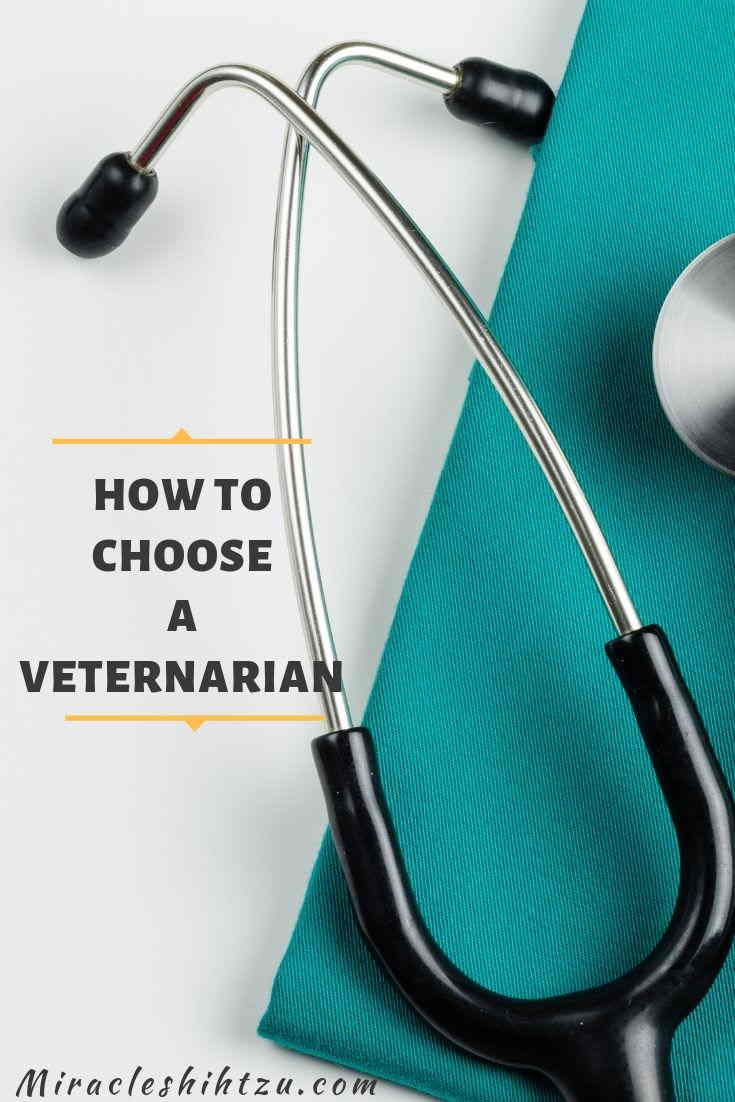How to Find a Vet
by Janice Jones
A better question to ask instead of how to find a vet would be how to find the RIGHT vet. Behind every health Shih Tzu is a well that qualified health professional we call a veterinarian.
Through years of school at the undergraduate level and then through veterinary school, she or he has studied biology and nutrition, and genetics and chemistry and surgical techniques and…
The road to being a professional vet is long and arduous. But with all vets receiving similar education, how do we know how to find a vet that would be best for our little Tzu?
Beyond the obvious of choosing a small animal practitioner over a large animal vet (those that treat horses, cows, etc.) you have a few more choices to consider. Most people need a general practitioner, a veterinarian skilled in general medicine and the one you will visit for checkups, routine tests and vaccines and when your dog gets sick.
How to Find a Vet: Types of Veterinarians
Specialty Veterinarians receive training above and beyond in a specialty area such as ophthalmology, reproductive sciences, orthopedics or cardiology.
There are as many different specialists in veterinary medicine as there are in the human arena. Normally one would contact a specialty veterinarian for help with a complex issue or a surgery not performed by your local vet.
All schools of veterinary medicines have facilities and equipment to diagnose and treat complicated health issues.
Emergency veterinary hospitals are those that are available around the clock and handle crisis situations such as if your dog was accidentally poisoned or struck by a car.
It’s never fun to think about these possibilities, but knowing where the closest emergency veterinary hospital will help put your mind at ease should the occasion arise. Then there are vets who practice in a conventional way and those that are holistic using alternative therapies.
Many people today are leaning towards a more holistic way of caring for their pets. Holistic veterinary medicine uses alternative medicine methods in the treatment of pets. Their approach views the animal as a whole, and not as a group of symptoms.
The goal is to encourage health through appropriate diet, natural remedies, homeopathy treatments, nutritional supplements and acupuncture. The idea behind this approach is to help the body heal itself.
When deciding how to find a vet, you need to think about your own philosophy towards health care. Holistic veterinarians differ in how much of their practice is devoted to treatment modalities that are considered traditional in nature verses those that are alternative.
It is important for you to feel comfortable with your choice of veterinarians, so we have provided the following list of criteria for you to use to determine which vet meets your needs. Remember that the veterinarian serves a critical role in keeping your dog healthy.
He or she should also be able to listen to your concerns, be empathic to your needs, and show respect and gentleness when it comes to your dog. In other words, the vet needs both people skills and doggie skills.
Going one step above that, the vet also needs to be a capable diagnostician, a skilled surgeon, and an expert communicator.
How to Find a Vet: Top 10 Critical Areas to Consider
Hours of Operation
Will the practice be open during times convenient to you or will you have to take off work to schedule routine check-ups.
Proximity to your Home:
Many people will drive an hour or more to see a specific vet, but the
majority of people want a veterinarian to be nearby, especially in the case of
an emergency. Did you know that the majority of dog owners will find a vet within 5 miles of their home?
Fees:
This is tricky and often a delicate topic, but it is important to you if finances are a priority. You should also feel comfortable with the fee schedule. Is it reasonable or do you feel the veterinarian is more interested in money than your dog.
Parking:
If you live in a city, is parting available and convenient.
The Facility:
You should get a feel for the cleanliness and organization when walking through the front door. Don’t be initially impressed with high tech equipment or a room full of highly credentialed individuals. On the other hand, a veterinary clinic that lacks basic modern medical diagnostic equipment may require you to visit a specialist for routine X-rays, ultrasound, blood work or EKGs.
The Staff:
How friendly and professional are they when they greet you. Do you feel they really care about you and your dog? OR, do they seem busy, unhappy, and preoccupied?
The veterinarian usually makes hiring decisions, so a friendly caring person at the front desk is a good sign. The presence of a licensed veterinary technician is a real plus. But an overly large office staff may set up a red flag unless there are numerous vets working there.
Large staffs might signify crowded schedules and higher prices. How many veterinarians practice at the facility? Will you be able to request a particular vet or see whoever is there on the day of your visit?
Appointments:
Are they required and how far in advance do you need to schedule them. Is there much wait time or does the veterinarian usually run on schedule.
Special interests:
Does the vet have an area of interest such as geriatrics or pediatrics? Even if a veterinarian is not board certified in a specialty area, they might have considerable knowledge in a particular aspect that could benefit your dog.
Attitudes and Biases:
How does the vet feel about certain issues that might affect you? Does he/she push vaccines and strict medication protocols or insist you follow a specific diet for your dog? How about pain management? Some vets prescribe pain medications freely while others do so sparingly.
These are just a few questions to help make that important
decision about veterinary care. No decision
is written in stone, though and if the relationship does not feel right, the
search for the right vet should begin again.
Most people love their vets and feel very comfortable with their care. When things do go astray, it is usually due
to miscommunication or unrealistic expectations on your part. I hope this has answered some of your questions about how to find a vet. If you enjoyed How to Find a Vet, you might also want to check out these other related resources.
"Hi, I'm Janice Jones, a former veterinary technician and Shih Tzu expert with over 40 years of experience with the breed. Through Miracle Shih Tzu, I combine my medical background and extensive breed knowledge to provide reliable, practical advice for Shih Tzu owners. My mission is to help you give your Shih Tzu the happiest, healthiest life possible through evidence-based information and real-world solutions. Whether you're new to the breed or a seasoned owner, you'll find trusted guidance here for all aspects of Shih Tzu care.
I hold an undergraduate degree in Psychology with a minor in biology, Early Childhood Education, and Nursing, and a Master's in Mental Health Counseling.












